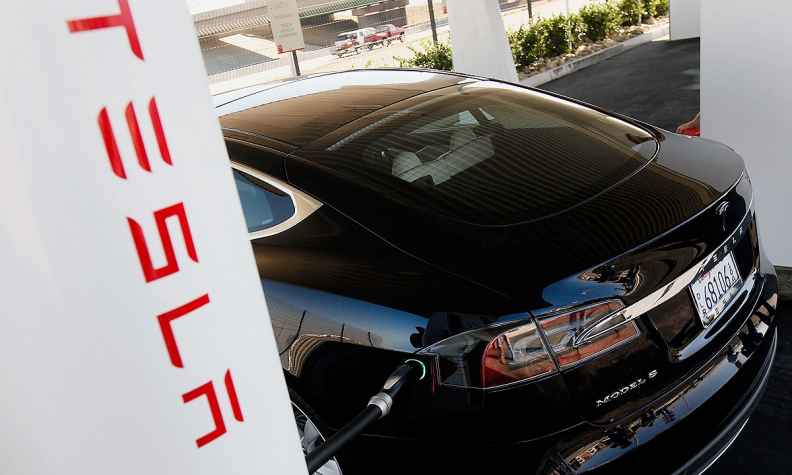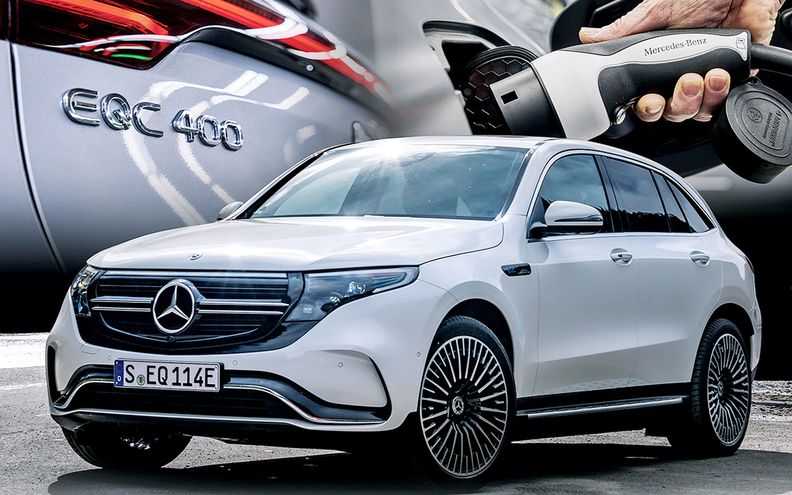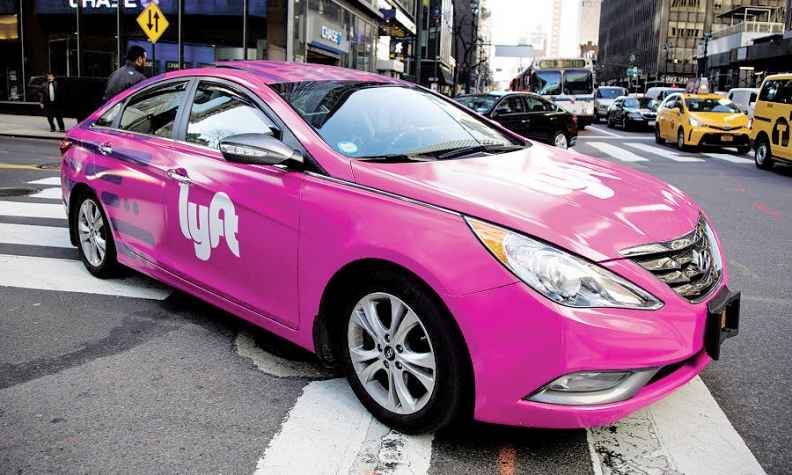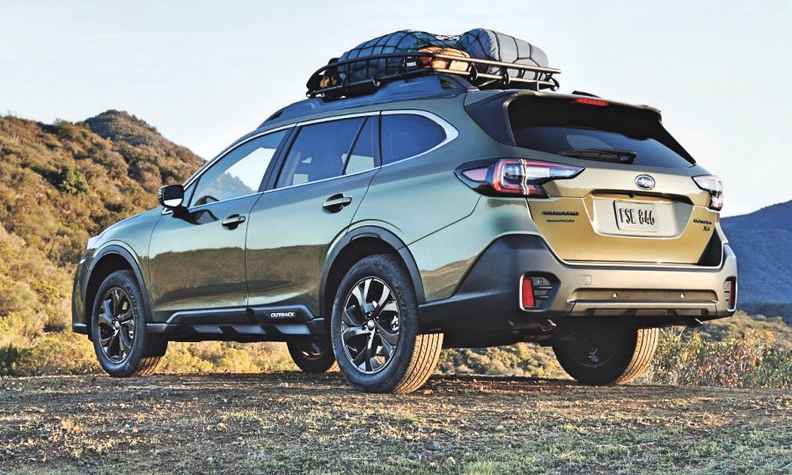DETROIT (Bloomberg) -- Tesla Motors Inc. customers are rich enough to keep buying luxury cars whatever the cost of a tank of gasoline. So the oil rout probably won’t hammer the stock for long.

The 14 percent decline in Tesla shares since the Thanksgiving holiday through Monday was driven by concerns that falling oil prices will dry up demand for the company’s cars, analysts said.
That speculation is overblown, said David Whiston, an auto analyst with Morningstar Inc. in Chicago. Since Tesla is selling cars that can top $100,000 to very wealthy people, the price at the pump is not a prime motivator in that consumer’s purchase decision, he said.
“A lot of investors think cheap oil is bad news for Tesla, but it’s not that simple,” Whiston said today in a telephone interview. “People who are buying Tesla today don’t really care if gas is cheap or expensive. They want it because it’s a status symbol or for the performance or they are very eco-conscious and just don’t want to consume fossil fuels, regardless of what they pay for the fossil fuels.”
The eight-day selloff should be seen as an opportunity to buy the stock at a discount, said Ben Kallo, an analyst with Robert W. Baird & Co., said Monday in a note. It accelerated Monday following a disappointing estimate of Tesla’s November U.S. sales by the industry website InsideEVs.com.
Today, Tesla rose 1.2 percent to close at $216.89 after falling as low as $204.27.
'Less incentive'
Consumers paying less at the pump may diminish the need for vehicles that run on an electric charge and can cost as much as $100,000. Gasoline prices in the U.S. as of Monday had fallen for 69 days to an average of $2.66 per gallon, according to the motoring club AAA.
“With the low oil prices, people will think ‘I can buy a normal car, it’s more beneficial that way,’” Ole Hui, a Hong Kong-based analyst at Mizuho Securities Asia Ltd., said by phone. “There’s less incentive to go to electric vehicles.”
InsideEVs.com estimated Tesla’s U.S. sales in November at 1,200 Model S cars, which would be the lowest in three months and unchanged from a year earlier. Tesla’s U.S. sales have fallen this year as the Palo Alto, California-based company began exporting its Model S luxury sedan to foreign markets. The company said it expects next year to sell 50,000 of the Model S, named last week as top luxury car in satisfaction in the Consumer Reports annual buyers survey.
“We believe the recent decline in TSLA shares is largely driven by the concern low gasoline prices could impact demand if sustained for the long term,” Kallo said Monday in a note.
Future sales
Still, Kallo and InsideEVs.com suggested the recent market reaction runs counter to Tesla’s future health. And sales of hybrid and electric cars increased 1.6 percent in November from October in the U.S. as gasoline prices were falling.
“We think the weakness provides a buying opportunity,” Kallo said in the note. Tesla “will continue to see strong demand which is largely driven by performance, quality, and brand.”
The problem for Tesla could come much farther down the road when CEO Elon Musk makes good on his promise to build electric cars for the masses in a bid to change the world like a 21st Century Henry Ford. The billionaire former CEO of PayPal Inc. also is out to disrupt the utility industry and space exploration with the battery gigafactory he’s building in Nevada and his other companies, SolarCity Corp. and Space Exploration Technologies Corp., known as SpaceX.
'Sustainable solution'
“The overarching purpose of Tesla Motors (and the reason I am funding the company) is to help expedite the move from a mine-and-burn hydrocarbon economy towards a solar electric economy, which I believe to be the primary, but not exclusive, sustainable solution,” Musk said in a 2006 blog post.
When Musk attempts to take on mass-market hybrids such as the Toyota Prius, that’s where low fuel prices could become a road block. Sales of Toyota Motor Corp.’s Prius fell 13 percent last month and are down 12 percent this year as U.S. gasoline prices have fallen to a 4.5-year low.
“The longer term threat is if cheap oil is permanent or going to be here for a very long time,” Whiston said. “That could create a problem for Tesla once it gets out of the vehicle segments that cater to the very wealthy and get down to the people who might normally buy a compact sedan like a Honda Civic. Those are the people who care about the price of gas.”
Not imminent
Such a threat isn’t imminent, nor is it assured, given the volatility of oil prices over the years, Whiston said. That’s why he has no plans to change his rating on Tesla of three stars out of five.
“I think Tesla will be selling everything they can produce, so I don’t think it’s time to cut solely on the oil prices today,” Whiston said. “Selling on the fall of oil prices isn’t necessarily the right thing to do.”
InsideEVs.com advised against putting too much emphasis on Tesla’s sales in November before of the start of all-wheel-drive deliveries this month.
“If there was ever a month to be ignored for Model S sales, it would probably be November,” said InsideEVs.
Tesla fell 4.2 percent to $214.36 at the close Monday, the seventh straight day the shares traded down, losing a total of 14 percent. For the year, the shares have gained 42 percent through Monday.
While the carmaker said its will introduce a Model X SUV in the third quarter of 2015, Audi AG said it will roll out an electric-powered crossover in 2017 to challenge Tesla.
Kallo said buyers of electric vehicles are attracted by the ability to ignore the ups and downs of gas prices.
“Although the recent decline in oil prices has caused concern about EV demand, we believe EV purchasers are focused on the long-term benefit of not being exposed to oil price fluctuations,” he said. “We believe demand for TSLA’s vehicles will remain strong.”









Post your comment